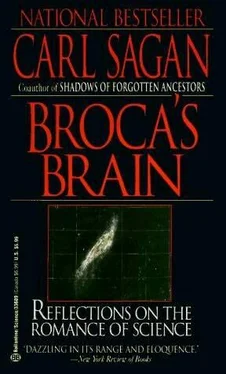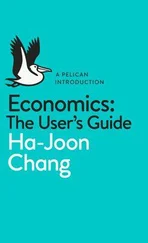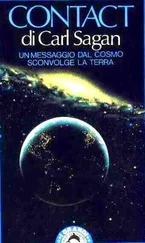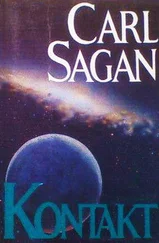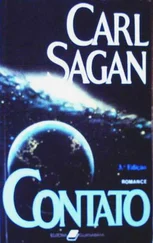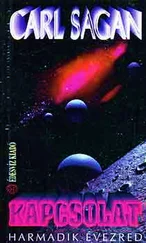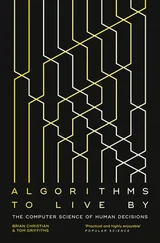[21]This subject is rich in irony. Augustine was born in Africa in 354 A.D. and in his early years was a Manichean, an adherent of a dualistic view of the universe in which good and evil are in conflict on roughly equal terms, and which was later condemned as a “heresy” by Christian orthodoxy. The possibility that all was not right with Manicheanism occurred to Augustine when he was studying its astronomy. He discovered that even the leading figures in the faith could not justify its murky astronomical notions. This contradiction between theology and science on matters astronomical was the initial impetus moving him toward Catholicism, the religion of his mother, which in later centuries persecuted scientists such as Galileo for trying to improve our understanding of astronomy. Augustine later became Saint Augustine, one of the major intellectual figures in the history of the Roman Catholic church, and his mother became Saint Monica, after whom a suburb of Los Angeles is named. Bertrand Russell wondered what Augustine’s view of the conflict between astronomy and theology would have been had he lived in the time of Galileo.
[22]But there is still a debate on how much deuterium can be made in the hot insides of stars and later spewed back into the interstellar gas. If this is substantial, the present deuterium abundance will have less impact on the density of the early universe.
[23]It is interesting to wonder why psychedelic molecules exist-especially in great abundance-in a variety of plants. The psychedelics are unlikely to provide any immediate benefit for the plant. The hemp plant probably does not get high from its complement of 1Δ tetrahydrocannabinol. But human beings cultivate hemp because the hallucinogenic properties of marijuana are widely prized. There is evidence that in some cultures psychedelic plants are the only domesticated vegetation. It is possible that in such ethnobotany a symbiotic relationship has developed between the plants and the humans. Those plants which by accident provide desired psychedelics are preferentially cultivated. Such artificial selection can exert an extremely powerful influence on subsequent evolution in relatively short time periods-say, tens of thousands of years-as is apparent by comparing many domesticated animals with their wild forebears. Recent work also makes it likely that psychedelic substances work because they are close chemical congeners of natural substances, produced by the brain, which inhibit or enhance neural transmission, and which may have among their physiological functions the induction of endogenous changes in perception or mood.
[24]A fascinating description of Grof’s work and the entire range of psychedelics can be found in the forthcoming book Psychedelic Drugs Reconsidered by Lester Grinspoon and James Bakalar (New York, Basic Books, 1979). Grof’s own description of his findings can be found in Realms of the Human Unconscious by S. Grof (New York, E. P. Dutton, 1976) and The Human Encounter with Death by S. Grof and J. Halifax (New York, E. P. Dutton, 1977).
[25]Astonishingly, oxytocin turns out to be an ergot derivative that is chemically related to psychedelics such as LSD. Since it induces labor, it is at least a plausible hypothesis that some similar natural substance is employed by nature to induce uterine contractions. But this would imply some fundamental connection for the mother-and perhaps for the child-between birth and psychedelic drugs. Perhaps it is therefore not so implausible that, much later in life under the influence of a psychedelic drug, we recall the birth experience-the event during which we first experienced psychedelic drugs.
[26]A different but not inconsistent hypothesis on the Eden metaphor, in phylogeny rather than ontogeny, is described in The Dragons of Eden.
[27]One curious variant is given in Arthur Schnitzler’s Flight Into Darkness: “… at all the moments of death of any nature, one lives over again his past life with a rapidity inconceivable to others. This remembered life must also have a last moment, and this last moment its own last moment, and so on, and hence, dying is itself eternity, and hence, in accordance with the theory of limits, one may approach death but can never reach it.” In fact, the sum of an infinite series of this sort is finite, and the argument fails for mathematical as well as other reasons. But it is a useful reminder that we are often willing to accept desperate measures to avoid a serious confrontation with the inevitability of death.
[28]Kangaroos are born when they are little more than embryos and must then make, entirely unassisted, a heroic journey hand over hand from birth canal to pouch. Many fail this demanding test. Those who succeed find themselves once again in a warm, dark and protective environment, this one equipped with teats. Would the religion of a species of intelligent marsupials invoke a stern and implacable god who severely tests marsupialkind? Would marsupial cosmology deduce a brief interlude of radiation in a premature Big Bang followed by a “Second Dark,” and then a much more placid emergence into the universe we know?
